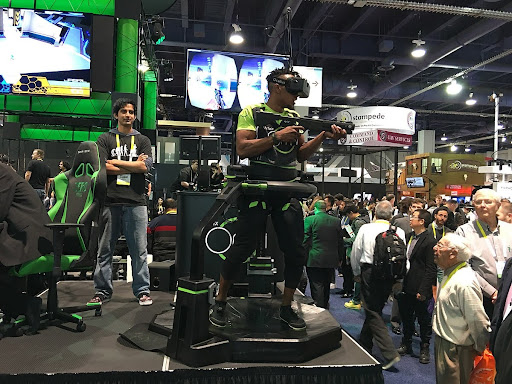Author: Nigel Pereira
With a background in Linux system administration, Nigel Pereira began his career with Symantec Antivirus Tech Support. He has now been a technology journalist for over 6 years and his interests lie in Cloud Computing, DevOps, AI, and enterprise technologies.
Training AI for Pennies on the Dollar: Are DeepSeek’s Costs Being Undersold?DeepSeek is allegedly running on a budget so low it makes OpenAI and Google look like they’ve been burning money for fun. However, we’re not seeing OpenAI, Google DeepMind, or even smaller AI startups rushing to implement DeepSeek’s methods. China just claimed they’ve cracked the code on AI training costs, and honestly, that should make everyone a little suspicious. DeepSeek, their latest homegrown AI model, is allegedly running on a budget so low it makes OpenAI and Google look like they’ve been burning money for fun. The claim? DeepSeek…
Before you invest money that you earned the hard way, it’s crucial to understand the dirty tricks shady developers and bad actors use to manipulate markets and drain bank accounts. The world of crypto can feel a lot like a gold rush, exciting, full of potential, and just as likely to leave you empty-handed if you don’t know what you’re doing. While Bitcoin and Ethereum have turned early believers into millionaires, the crypto space is also littered with scams, rug pulls, and hype-driven disasters. While new investors often dive in chasing quick gains, they often find themselves caught in a…
NVIDIA claims fully autonomous gaming characters are ready for games like PUBG: Battlegrounds and Naraka: Bladepoint. Without repetitive dialogue and a predictable script, this could be fun. NVIDIA just walked onto the CES stage, dropped a bombshell for gaming AI, and left all of us crossing our fingers hoping that it all comes true. Their new Avatar Cloud Engine (ACE) isn’t just some minor graphics tweak, it’s an entire system designed to make NPCs think, react, and talk like actual people. Imagine booting up an RPG full of intelligent NPCs that remember every single interaction you have had with them,…
Branding themselves as a metaverse-driven asset with staking rewards, NFT integration, and virtual banking ambitions, is PVC Meta Coin likely to deliver on its promises? Here’s what we think… Crypto never runs out of bold promises. Every other week, a new token pops up, swearing it’ll change the game, revolutionize finance, or at the very least, make investors rich. PVC Meta Coins are among the latest contenders, branding themselves as a metaverse-driven asset with staking rewards, NFT integration, and virtual banking ambitions. Sounds impressive? Maybe. But we’ve heard all this before. With countless tokens riding hype waves only to be…
This experiment from FinalSpark cracks open some big (and honestly, a little unsettling) questions about consciousness, identity, and where the line blurs between biology and machines. A few months ago we posted an article titled “This computer uses human brain cells and runs on dopamine!” The computer in question is called a “Neuroplatform” and the team responsible for it is a team of Swiss Scientists that call themselves FinalSpark. Now while we have already covered the basics of this living computer and how it’s built from organoids that are made out of human brain cells, we really couldn’t have imagined…
If we’re already using contact lenses to track what’s happening inside the body, who’s to say that one day we won’t eventually use them to track what’s happening inside the brain? While we almost always write articles like this about products that already exist, this time is an exception, and for good reason. If any of us were to try out a Brain Computer Interface, it would have to be non-invasive or no deal. While getting plugged into a virtual world is the stuff of dreams, if you didn’t cringe when the long spiky thing went into the back of…
Similar to how ChatGPT uses massive language models to understand and respond intelligently, Cosmos provides robots with foundation models that help them navigate, interact, and adapt to real-world environments. Last year in July we posted an article titled “Nvidia Project GR00T.” In it we talk about Nvidia’s Generalist Robot 00 Technology powered by the Blackwell chip and how it enables robots to mimic humans purely by observation. This new update from Nvidia, however, is next level, and many are even referring to it as a “ChatGPT” moment for robotics. The NVIDIA Cosmos platform was unveiled at CES 2025 by Jensen…
By combining instant trend analysis with external data sources, X aims to make ad campaigns that are smarter, more dynamic, relevant, and better timed than ever before. Social media moves at warp speed, period. What’s trending in the morning could be old news by lunch and vice-versa. So how do you stay ahead of the curve instead of playing catch-up with topics and trends that keep changing? According to Elon Musk, you use X’s new AI tool Trend Genius that’s designed to spot trends before they explode. It does this by combing through millions of posts, tracking engagement patterns and…
Unlike Apple’s walled garden, Samsung’s approach is all about open ecosystems and accessibility. Moohan runs on Google’s new Android XR platform, meaning it’ll support existing Android apps and a fresh wave of XR experiences. While Apple’s Vision Pro definitely made some waves, Samsung isn’t sitting this one out. Enter Project Moohan, Samsung’s ambitious mixed reality headset that’s shaping up to be a serious competitor in the very competitive world of VR. And the best part? It’s going to play nice with Android. Unlike Apple’s walled garden, Samsung’s approach is all about open ecosystems and accessibility. Moohan runs on Google’s new…
While virtual reality is indeed a bold leap forward, it would be nice if you could take that leap without crashing into real obstacles in the real world. We’ve all seen videos of people wearing VR headsets and crashing into walls, falling down stairs, rolling on the ground, and just generally making a mess of the entire experience. While virtual reality is indeed a bold leap forward, it would be nice if you could take that leap without crashing into real obstacles in the real world. Enter the omnidirectional VR treadmill, a device that, as its name suggests, allows you…













